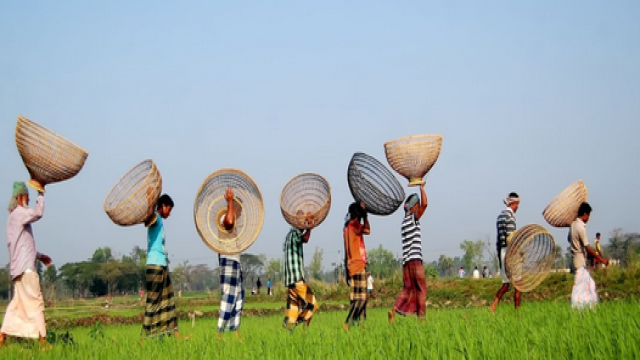Dhaka, the capital city of Bangladesh, has been grappling with air pollution issues, with its air quality often turning unhealthy in winter and improving during the monsoon.
The city has recently ranked fifth on the list of cities worldwide with the worst air quality, with an AQI score of 152 at 9 am on May 24, 2024. This classification indicates that the air quality in Dhaka was 'unhealthy' according to the air quality index.
The AQI value for particle pollution serves as a crucial indicator, with values between 101 and 150 considered 'unhealthy for sensitive groups', between 150 and 200 classified as 'unhealthy', and readings of 201 and above deemed 'very unhealthy' or 'hazardous', posing serious health risks to residents.
The air quality in Bangladesh is assessed based on five pollutants: particulate matter (PM10 and PM2.5), NO2, CO, SO2, and ozone. The city's air pollution levels have been a cause for concern, with the World Health Organization (WHO) estimating that air pollution leads to an estimated seven million deaths worldwide every year, primarily due to increased mortality from various health conditions.































Comment: